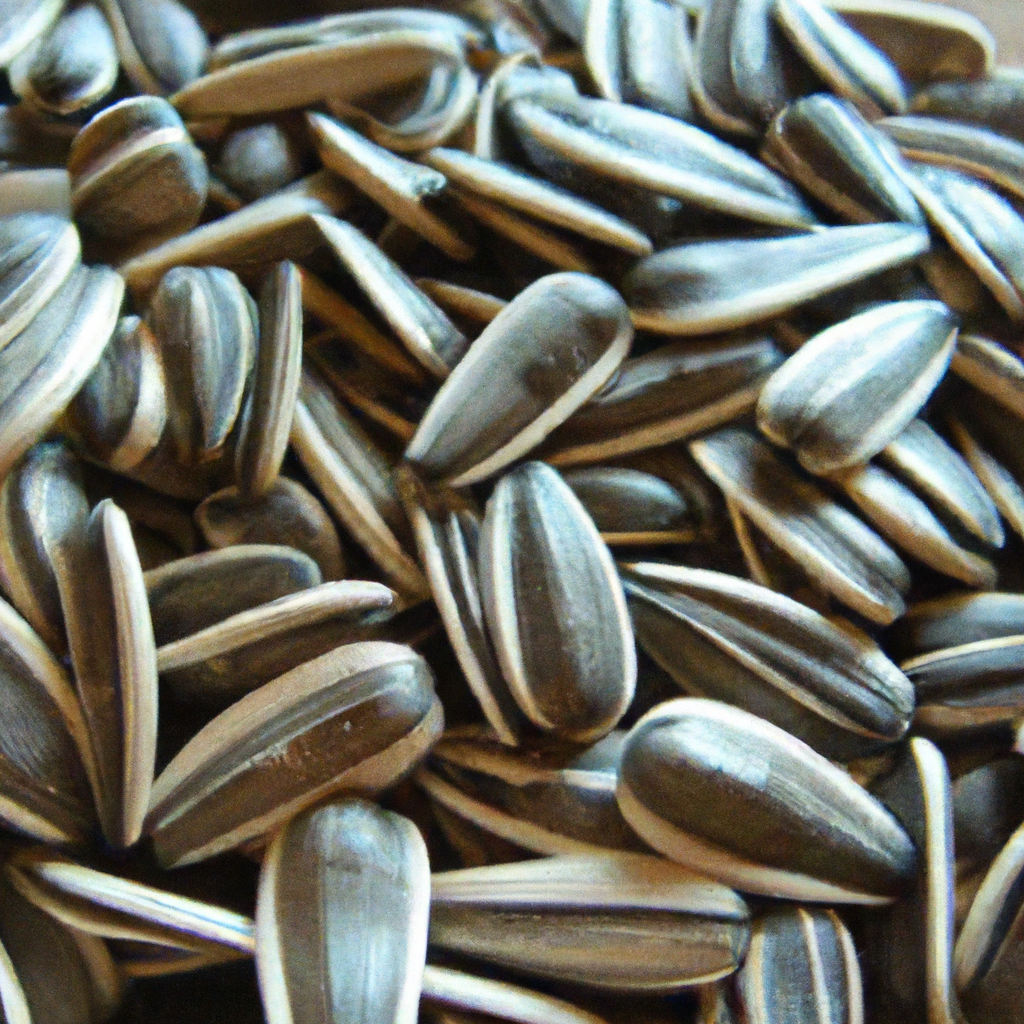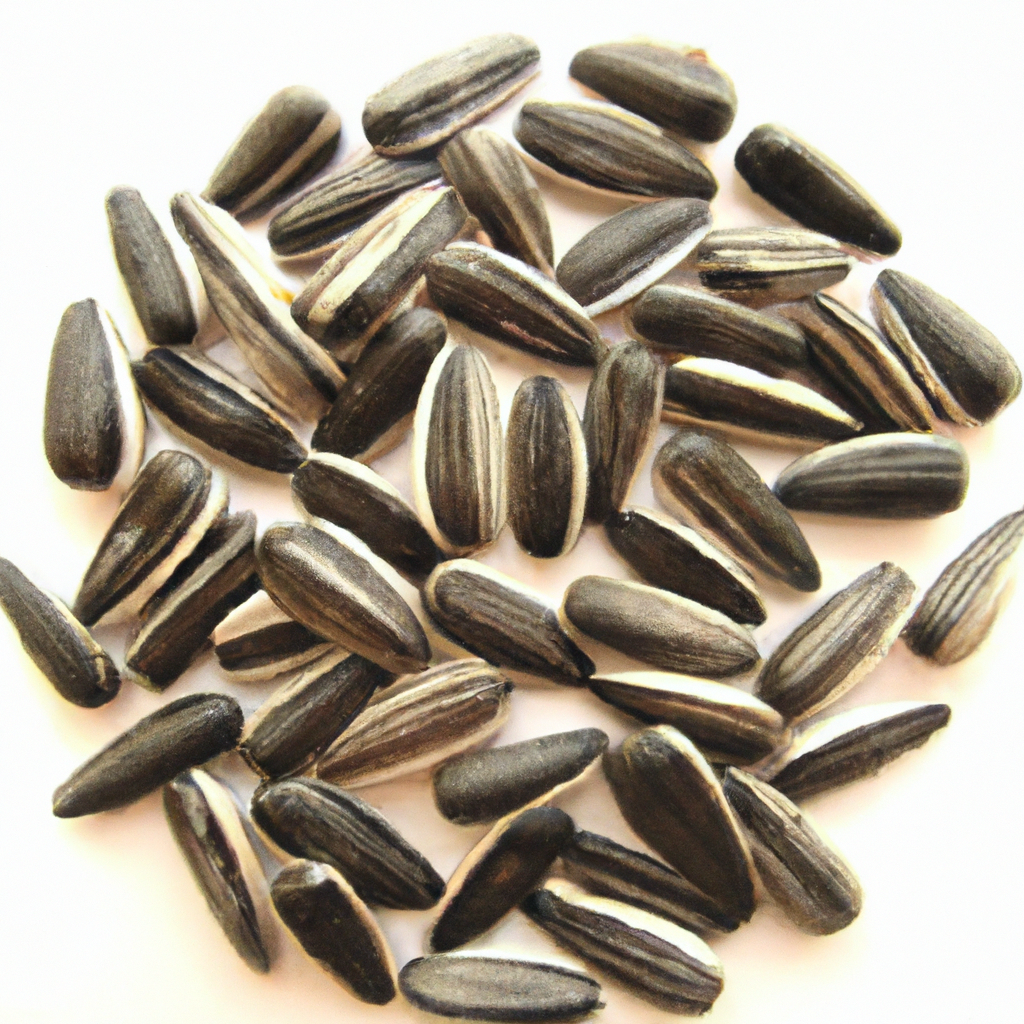
The Nutritional Benefits of Sunflower Seeds
Did you know that sunflower seeds offer a wealth of nutritional benefits? Packed with protein, healthy fats, fiber, vitamins, and minerals, these tiny powerhouses are a nutritious addition to any diet. While they may be calorie-dense, the unsaturated fat found in sunflower seeds is actually beneficial for heart health. Additionally, the nutrients in these seeds may aid in weight loss by increasing feelings of fullness and preserving muscle mass. If you’re looking to stick to a diet plan, sunflower seeds can be a great option thanks to their fiber content, which promotes satiety, and their versatility in various dishes. Whether you enjoy them on their own, in trail mixes, as a topping, or in the form of sunflower seed butter, make sure to watch portion sizes and opt for unsalted or lightly salted varieties to avoid excessive sodium intake.
Table of Contents
ToggleHealth Benefits of Sunflower Seeds
Sunflower seeds are not only a tasty snack but also packed with numerous health benefits. Let’s take a closer look at the nutritional profile of sunflower seeds and explore how they can contribute to a healthy lifestyle.
Nutritional profile of sunflower seeds
Sunflower seeds are incredibly nutritious, containing an array of essential nutrients. They are rich in protein, healthy fats, fiber, vitamins, and minerals. This unique combination makes them a great addition to any diet.
Protein content in sunflower seeds
Protein is an essential macronutrient that plays a crucial role in building and repairing tissues, supporting immune function, and maintaining overall health. Sunflower seeds are a fantastic plant-based source of protein, making them an excellent choice for vegetarians and vegans. Incorporating sunflower seeds into your diet can help ensure you meet your daily protein requirements.
Healthy fats in sunflower seeds
Contrary to popular belief, not all fats are bad for you. In fact, some fats are essential for optimal health. Sunflower seeds contain healthy unsaturated fats, including both monounsaturated and polyunsaturated fats. These fats are known to have numerous benefits, especially for heart health.
Fiber content in sunflower seeds
Fiber is an important component of a healthy diet, as it aids in digestion, promotes satiety, and supports overall gut health. Sunflower seeds are an excellent source of dietary fiber, which can help regulate blood sugar levels, prevent constipation, and reduce the risk of certain diseases like heart disease and diabetes.
Vitamin content in sunflower seeds
Sunflower seeds are rich in various vitamins, including vitamin E, vitamin B1 (thiamine), vitamin B6, and folate. Vitamin E is a powerful antioxidant that helps protect cells from damage, while B vitamins play essential roles in energy production, brain function, and the formation of red blood cells.
Mineral content in sunflower seeds
In addition to vitamins, sunflower seeds are packed with beneficial minerals such as magnesium, phosphorus, manganese, copper, and selenium. These minerals are involved in various bodily functions, including bone health, energy metabolism, and immune system function.
Sunflower Seeds and Heart Health
Maintaining a healthy heart is vital for overall well-being. The unsaturated fat content in sunflower seeds contributes to heart health in several ways.
Unsaturated fat in sunflower seeds
Unlike unhealthy saturated and trans fats found in processed foods, the fat found in sunflower seeds is primarily unsaturated fat. Unsaturated fats, including mono- and polyunsaturated fats, have been shown to have positive effects on heart health when consumed in moderation.
Effects of unsaturated fat on heart health
Consuming unsaturated fats, such as those found in sunflower seeds, can help reduce LDL (bad) cholesterol levels and increase HDL (good) cholesterol levels. This balance is essential for maintaining heart health and reducing the risk of heart disease. Additionally, unsaturated fats have anti-inflammatory properties, which can further protect against heart disease.
Sunflower Seeds and Weight Loss
If you’re looking to shed some pounds or maintain a healthy weight, sunflower seeds can be a beneficial addition to your diet. While more research is needed specifically on sunflower seeds and weight loss, here’s how they may contribute to your weight loss journey.
Role of sunflower seeds in weight loss
Sunflower seeds are calorie-dense, meaning they provide a significant number of calories in a small serving. However, they also contain a good amount of protein, healthy fats, and fiber, which are all essential for weight loss. These nutrients can help you feel satisfied and full, preventing overeating and unnecessary snacking.
Increased feelings of fullness
The combination of protein, healthy fats, and fiber in sunflower seeds can increase satiety and help control hunger cravings. Including a small portion of sunflower seeds in your meals or snacks can help you feel fuller for longer, reducing the likelihood of overeating or reaching for unhealthy snacks.
Preservation of muscle mass
During weight loss, it’s essential to preserve muscle mass and focus on losing body fat. Sunflower seeds, with their protein content, can aid in maintaining muscle mass while shedding excess body fat. This is crucial for maintaining a healthy metabolism and overall strength.
Lack of research on sunflower seeds and weight loss
While there is evidence supporting the potential weight loss benefits of sunflower seeds, it is important to note that there is currently a lack of specific research solely focused on sunflower seeds and weight loss. However, incorporating them into a balanced diet can still provide a range of beneficial nutrients that support overall health.
Incorporating Sunflower Seeds into a Diet Plan
Adding sunflower seeds to your diet plan can be a simple and delicious way to enhance nutrition and stay on track with your health goals. Here are a few tips for incorporating sunflower seeds into your diet plan effectively.
Benefits of fiber in sunflower seeds for satiety
As mentioned earlier, sunflower seeds are a great source of dietary fiber. This fiber content can promote feelings of satiety and help control hunger, making it easier to stick to your diet plan. Consider adding sunflower seeds to salads, soups, or stir-fries for an extra dose of fiber and crunch.
Flexibility in food preferences
Following a diet plan doesn’t mean you have to give up on flavor and enjoyable meals. Sunflower seeds provide a versatile option that can be incorporated into various recipes and dishes. Experiment with adding them to yogurt, smoothies, or baked goods for a unique twist.
Portion sizes and moderation
While sunflower seeds offer numerous health benefits, it’s important to consume them in moderation. Due to their high calorie content, it’s easy to overindulge and consume more calories than intended. Be mindful of portion sizes and enjoy a small handful of sunflower seeds as a snack or a sprinkle on top of your favorite dishes.
Choosing unsalted or lightly salted varieties
When purchasing sunflower seeds, opt for unsalted or lightly salted varieties. This allows you to control your sodium intake and reduce the risk of excessive salt consumption, which can be harmful to your health. High sodium intake is associated with increased blood pressure and can negatively impact heart health.
Different Ways to Enjoy Sunflower Seeds
There are numerous ways to enjoy the delicious and nutritious sunflower seeds. Here are a few ideas to incorporate sunflower seeds into your meals and snacks.
Eating sunflower seeds by themselves
Sometimes, simplicity is key. Snacking on plain roasted sunflower seeds is a fantastic way to enjoy their natural flavor and reap their health benefits. Carry a small portion with you to work, school, or on outdoor adventures for a quick and nutritious snack.
Including sunflower seeds in trail mixes
Trail mixes are a versatile and convenient snack option, especially for individuals who are always on the go. Adding sunflower seeds to a trail mix provides a satisfying crunch and extra nutritional value. Combine them with dried fruits, nuts, and perhaps a touch of dark chocolate for a balanced and delicious snack.
Using sunflower seeds as a topping
Boost the nutritional value of your meals by using sunflower seeds as a topping. Sprinkle them onto salads, stir-fries, oatmeal, or yogurt for a delicious crunch and added protein and healthy fats. This simple addition can transform an ordinary dish into a nutritious and flavorful meal.
Sunflower seed butter as an alternative
For those with peanut allergies or looking for a nut-free alternative, sunflower seed butter is an excellent choice. It can be used as a spread on toast, in sandwiches, or as a dip for fruits and vegetables. Sunflower seed butter is not only delicious but also provides a similar nutritional profile to other nut butters, making it a versatile and healthy choice.
Conclusion
Incorporating sunflower seeds into your diet plan can provide a range of health benefits. From their nutritional profile to the potential advantages for heart health and weight loss, these tasty seeds offer a variety of advantages. Remember to enjoy them in moderation, choose unsalted varieties, and be creative with how you incorporate them into your meals and snacks. Harness the power of sunflower seeds and embark on a journey towards a healthier and more fulfilling lifestyle.
Discover the wealth of nutritional benefits sunflower seeds offer! Packed with protein, healthy fats, and fiber, they’re a nutritious addition to any diet. Find out how they promote heart health, aid in weight loss, and enhance your meals and snacks.


